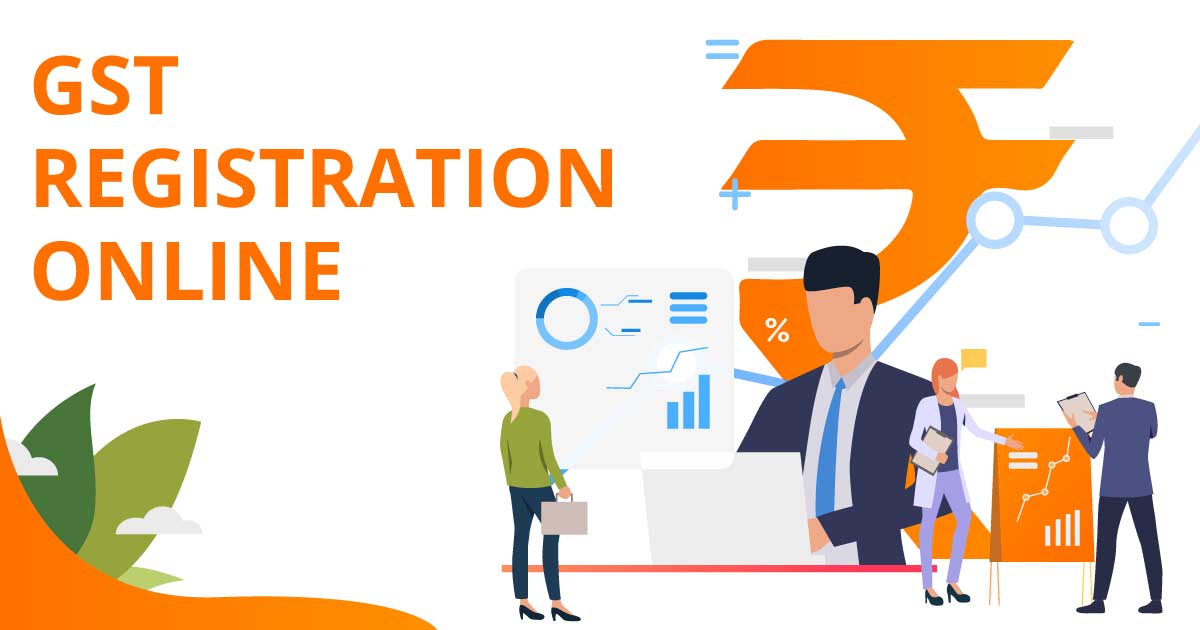How CFO Account & Services Can Simplify Your GST Registration Refine in Singapore
How CFO Account & Services Can Simplify Your GST Registration Refine in Singapore
Blog Article
Navigating the Intricacies of GST Registration: A Comprehensive Guide for Entrpreneurs
Browsing the complexities of GST enrollment can be an overwhelming task for several local business owner, as it entails a myriad of rules, regulations, and refines that have to be stuck to. With the ever-evolving landscape of tax legislations, making sure compliance and recognizing the intricacies of GST enrollment is critical for the seamless operation of any organization. From establishing qualification and collecting the needed documents to optimizing procedures for maximum efficiency, this extensive guide intends to offer business owners with the expertise and devices required to navigate the complexities of GST enrollment effectively.
Qualification for GST Registration
Company proprietors must satisfy specific requirements to identify their qualification for GST enrollment. As a whole, companies with a yearly turn over going beyond a particular threshold are required to register for Item and Services Tax (GST) This threshold varies by country, but it is essential for entrepreneurs to remain educated about the particular policies in their jurisdiction. In addition, businesses associated with interstate materials, shopping, or the stipulation of particular defined items and solutions may additionally be mandated to sign up for GST, no matter their turn over.
Additionally, services that are signed up under any kind of previous tax program, such as VAT or solution tax, are generally needed to shift to GST registration. Understanding these requirements is essential for entrepreneur to ensure conformity with the legislation and stay clear of any kind of fines or legal concerns. It is advisable for business owners to seek advice from with tax professionals or legal experts to analyze their eligibility for GST registration properly. By adhering to the needed standards, organizations can efficiently navigate the complexities of GST registration and operate lawfully within the tax structure.
Papers Needed for Registration
To finish the GST enrollment procedure, organizations need to collect and submit a detailed set of records. The key files needed for GST enrollment usually include proof of business registration or incorporation such as the Certification of Incorporation, partnership act, or any type of various other enrollment certificate.
Moreover, details papers connected to the nature of the company, such as a checklist of items or services supplied, HSN codes for goods, and SAC codes for solutions, might be called for - Why choose CFO Account & Services for GST registration in Singapore. It is essential for organizations to make certain that all papers sent are precise, up-to-date, and in the suggested format to prevent any delays or difficulties in the GST registration procedure
Process of GST Registration
Having actually assembled the requisite documentation, companies proceed to initiate the GST enrollment process by involving with the online portal designated for registration. This on the internet portal is the Goods and Services Tax Network (GSTN) site, which works as the primary system for all GST-related activities in India. Upon accessing the website, companies are required to fill in the GST registration form with precise details regarding their service activities, turn over, and various other relevant info.
When the form is finished and submitted on the website, the GSTN verifies the details given by the site link service. Adhering to successful confirmation, a GST enrollment certification is issued to the service entity.
It is essential for services to guarantee that the information given throughout the GST enrollment process is exact and as much as day to avoid any kind of potential problems or delays in acquiring the GST registration certificate.
Recognizing GST Compliance

Services require to be mindful of the different GST conformity needs based upon their turnover, nature of solutions or products, and the states in which they run. It is essential to remain updated on any adjustments in GST legislations and regulations to protect against any type of non-compliance concerns.
Non-compliance with GST policies can result in substantial penalties, penalties, and even lawful effects. As a result, services must invest time and resources in educating themselves and their personnel on GST conformity. Seeking specialist support from tax obligation experts or professionals can also assist in browsing the complexities of GST compliance and making sure that services operate within the legal structure.

Tips for Optimizing Company Procedures
For boosted effectiveness and productivity in service operations, calculated planning and streamlined procedures are crucial elements. One suggestion for enhancing organization operations is to utilize modern technology effectively (Why choose CFO Account & Services for GST registration in Singapore). Executing the appropriate software program options can automate recurring tasks, improve precision, and improve total operations performance. Furthermore, carrying out routine efficiency evaluations and collecting comments from employees can supply important understandings for recognizing bottlenecks and locations for improvement.
One more important element is focusing on jobs based upon their relevance and target dates. By producing a clear pecking order of jobs and establishing realistic timelines, organizations can ensure that important activities are finished promptly. Fostering a society of open interaction and collaboration among team participants can lead to enhanced efficiency and development.

Final Thought
In conclusion, browsing pop over to this site the complexities of GST registration calls for a clear understanding of eligibility requirements, necessary documents, registration procedures, and conformity requirements. By adhering to these guidelines and optimizing service operations, entrepreneur can make sure smooth procedures and conformity with the GST guidelines. It is important for businesses to remain informed and upgraded on GST policies to avoid investigate this site any kind of penalties or legal issues.
The key files required for GST enrollment commonly include proof of company enrollment or unification such as the Certification of Incorporation, collaboration action, or any kind of other registration certification.Having constructed the requisite documentation, businesses continue to launch the GST enrollment procedure by involving with the on the internet portal assigned for registration. Upon accessing the portal, companies are required to load out the GST enrollment type with precise information concerning their company activities, turnover, and various other appropriate details.
In order to keep adherence to GST guidelines and stay clear of fines, organizations have to prioritize recognizing GST compliance. By sticking to these standards and optimizing service procedures, company owners can guarantee smooth operations and conformity with the GST policies.
Report this page